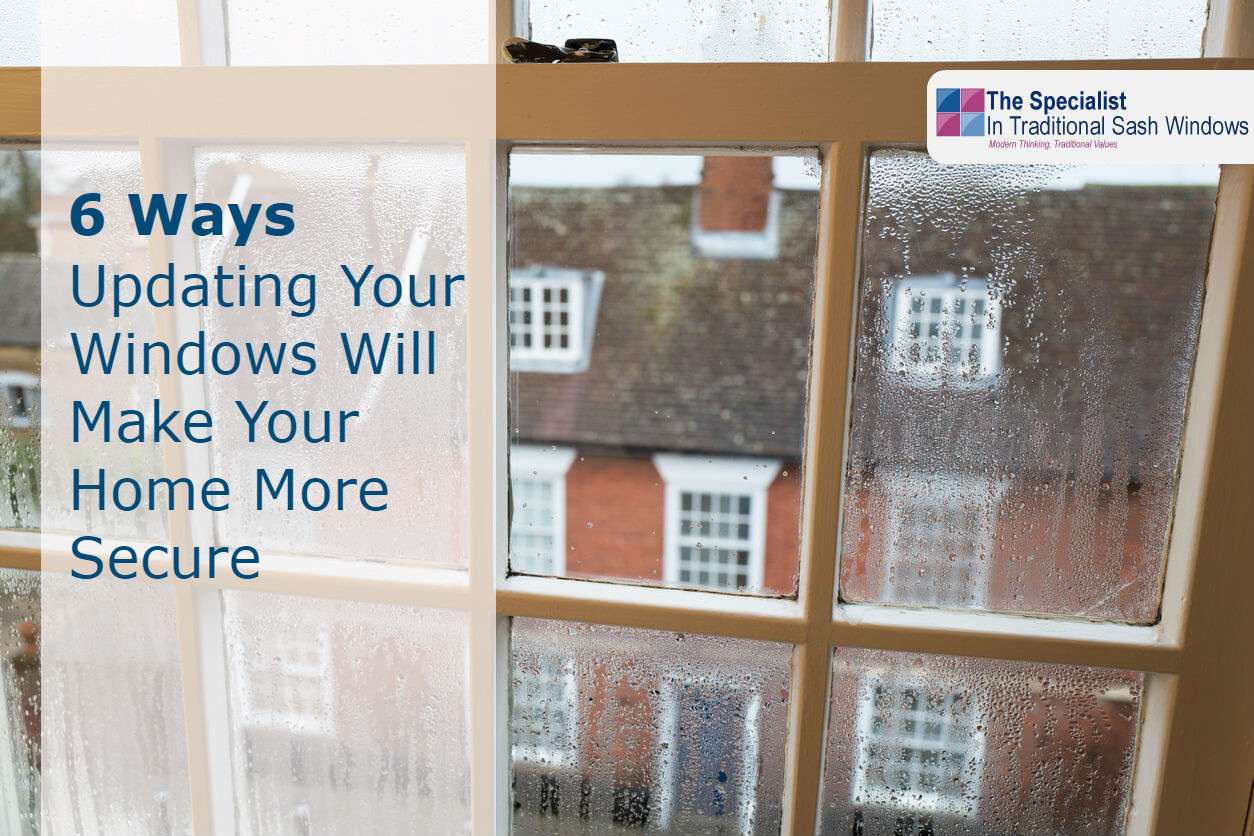
As October is National Home Security Month, now is the time to think about how secure your home’s windows and doors are, and whether it’s time you considered an upgrade.
We’ve outlined some of the key security advantages to updating your windows, so read on to find out how to make your home as safe as possible.
Number 6: Double vs. Single Glazing
It is probably not much of a surprise that double glazing is considerably better at blocking out noise and stopping your household heating bill from seeping out of the window… but did you know that single glazing also comes with some serious security risks?
A lot of homes, particularly those built in the Victorian era, are still fitted with outdated, single-glazed windows that consist of measly 3mm thick glass. To put that in context, modern double-glazed windows are made up of two panes of 4mm thick glass. Half the thickness means half the security, as it’s scarily easy for an intruder to break through a single pane, particularly one that’s only 3mm thick.
In fact, glass so thin and fragile is nowadays considered too dangerous, so much so that it is no longer even fitted. So, if single glazing is not good enough to be installed today, it is also not good enough if you already have it in your home.
Number 5: Type of Glass
It is not just how many panes of glass you have that’s important for security, it is also what kind of glass it is.
Easily one of the most secure glazing options on the market is Toughened Safety Glass. If broken, this glass breaks into small cubes, rather than jagged shards. This means that a broken window is more likely to cause light scratches rather than an afternoon in A&E.
What’s more, Toughened Safety Glass comes with a special visible mark – warning intruders off by alerting them to the fact that this glass is so strong that it will be more difficult to try and break through.
Then there is Laminated Safety Glass, which works similarly to a car windscreen. Between the two layers of glazing sits a thin film, which keeps the layers of glass bonded even when broken. As a result, if broken, the glass stays within the frame, helping your living room carpet avoid an unwelcome showering of glass shards.
Number 4: Treated Timber
If the wood frame of your windows is old and rotten, it poses an undeniable risk to their structural integrity, and therefore the security of your window and home. That is why updating your windows to ensure they are protected from wet and dry rot, as well as woodworm, is an absolute must.
In many grand, traditional Victorian homes, the wood used on the windows has never been replaced, or even treated. If exposed to moisture, too much heat, or just the general unpredictability of the British weather, untreated, unloved wooden window frames can quickly deteriorate.
Not only are tell-tale signs like chipping and holes and bubbling or puckered paint aesthetically problematic, they effectively act as advertisements to would-be burglars that your home would be fairly easy to break into.
It is therefore essential that you update your windows with treated timber, such as Accoya wood, which ticks all the boxes in terms of durability and resistance to weather damage, insect attacks, or decay and benefits from a 50-year guarantee against rot.
Number 3: Fire Safety
Keeping your windows up to date is not only a home security must-do when it comes to stopping intruders breaking in, it is also an absolute necessity to ensure that your family members can get out should they need to.
A surprising number of homes have windows so old and poorly-maintained that they are now effectively un-openable, jammed into their frames by years of neglect. Many even have windows that have been painted shut, thanks to a hapless DIY’er thinking that a fresh layer of gloss was all that was needed to restore an old window to its former glory. This is incredibly dangerous.
It is of upmost importance that you make sure that, in the event of a fire, your windows are able to offer a usable escape route. If they do not open, they need replacing or refurbishing to allow the windows to open.
Number 2: Locks
We all double check that we have locked the front door when leaving for work, but how often do you think about the locking systems on your windows?
Locking windows makes them considerably harder to break in through, as well as reducing the risk of a child managing to open and potentially fall out of a window. Unlockable windows can be one of the biggest warning signs that you need to install new ones.
But it is not always enough to just have a lock. You need to make sure your locks are in line with the regulations of Insurance Companies – meaning that they are lockable with a key and are able to withstand wear and tear over time. Sometimes, insurances providers will only cover you if you have British Standard locks, so this is definitely worth a check.
Number 1: Quality of Manufacture/Maintenance
When securing your home’s windows, workmanship is key.
Nobody wants windows that are poorly designed and badly fitted, which could be easily broken or forced open. You want to ensure you choose a quality manufacturer (who comply with British building regulations Part L, Doc 1b) and have windows installed that are tailored to your home, with safety, efficiency and fit prioritised above all else.
What’s more, poor maintenance can have equally as grave ramifications as cowboy buildings would on the security of your windows. Decades of neglect can leave windows with worn hinges or screws that could be easy to break. If this is the case in your home, it may be time to think about new, energy efficient and insurance and building regulation compliant timber windows.
You may be eligible to receive support through the Energy Government Grants, which is supported by Sash Windows and their expert team. View our dedicated page, discover our eco-friendly credentials or get in touch with the Sash Windows team.





